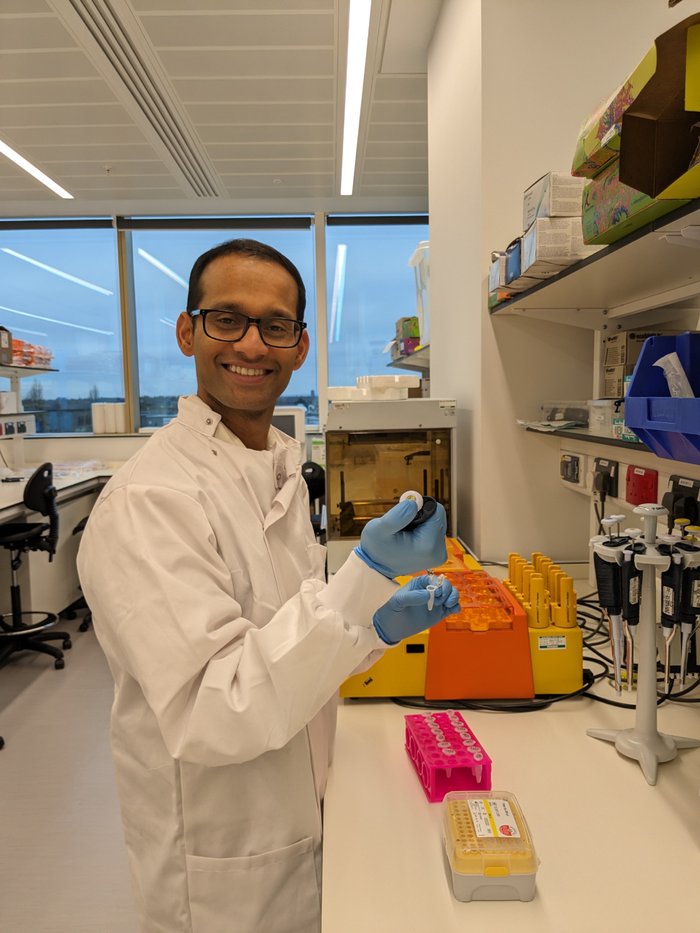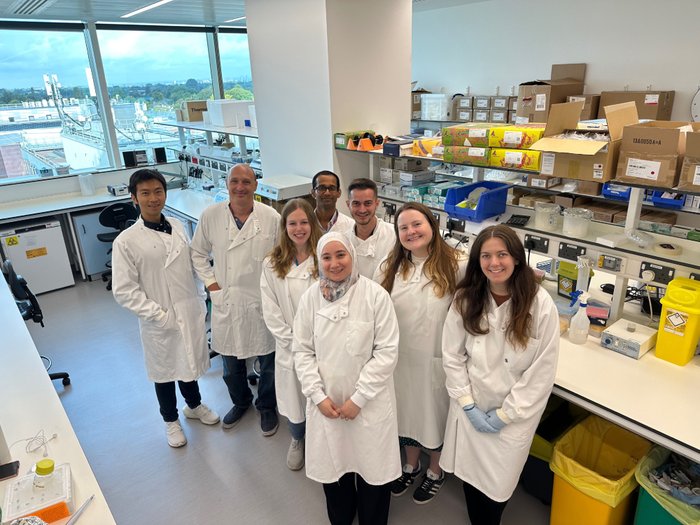Investigating the role of the KCNJ2 gene in chronic myelomoncytic leukaemia (CMML) cancer cells
Chronic myelomonocytic leukaemia (CMML) is a rare type of blood cancer that affects a type of white blood cell called monocytes. Dr Batta is researching the role of a specific gene and how it causes CMML cancer cells to grow. This will help scientists to find new ways to treat the disease.

Dr Batta in the lab.
The challenge
Chronic myelomonocytic leukaemia (CMML) is a rare type of blood cancer that affects a type of white blood cell called monocytes. Monocytes are an important part of the immune system that help us to fight off infection. However, people with CMML make too many monocytes, which crowd out normal cells in the blood. Dr Batta has previously been studying the role of genes in the CMML cancer cells in their lab. Compared to other types of blood cancer, relatively little is known about CMML so there aren’t currently many treatment options.
The project
Dr Batta and his team at the University of Manchester want to understand more about what causes CMML. They plan to investigate a gene called KCNJ2 in more detail. The gene is involved in inflammation – the body’s natural process when it is faced with infection. This KCNJ2 gene appears to be more active in CMML cancer cells compared to healthy cells. They’ve also discovered that this gene helps the CMML cancer cells to grow in numbers and thrive. In this project, Dr Batta wants to investigate this further so they can understand how the KCNJ2 gene causes CMML cancer cells to grow. He will conduct experiments to investigate whether it is possible to stop the growth of these CMML cancer cells using a specific drug that targets the KCNJ2 gene.
The future
It is hoped these experiments will help to understand why the KCNJ2 gene is active in cancer cells as this knowledge could help scientists to find new ways to treat the disease. It could also highlight new ways to treat other types of blood cancer, where inflammation plays a role in the disease such as acute myeloid leukaemia (AML), myeloproliferative neoplasms (MPN) and myelodysplastic syndrome (MDS).

Dr Batta and his team in the lab.
Funding
This project is part of the Omaze X Blood Cancer UK Research Fund.

